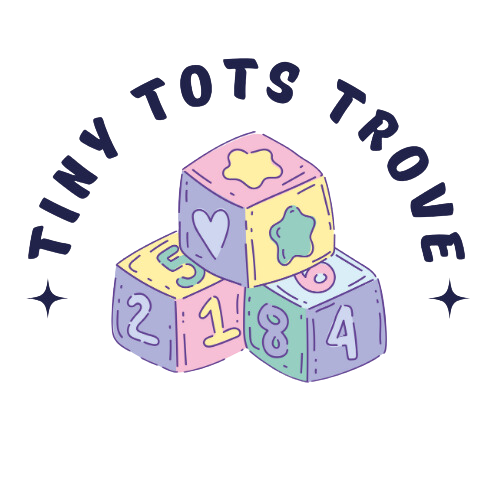
As a paediatric sleep consultant, with 20 years of nursing experience, I have seen first-hand how important an adequate amount sleep is for children. Unfortunately, It is often overlooked as a crucial aspect of child development, but research consistently emphasises its fundamental role in supporting physical, emotional, and cognitive growth. This blog will discuss how sleep influences children’s development and how holistic sleep training can play an important part in optimising sleep in children.
- Benefits of Sleep for Child Development
Physical Health & Development: Sleep plays a crucial role in a child’s physical development, primarily through the regulation of growth hormone production, which is essential for proper growth and bodily development (National Sleep Foundation, 2020). During deep sleep, the body repairs tissues, builds muscle, and strengthens bones, supporting overall physical health. Additionally, sufficient sleep enhances the immune system, helping children fight off illnesses and infections, which is particularly important during their formative years (American Academy of Paediatrics, 2019). Motor skills, including coordination and balance, are also significantly impacted by sleep quality. This directly influences a child's ability to engage in physical activities and navigate daily tasks (Hirshkowitz et al., 2015).
Cognitive Health & Development: Sleep is equally important for cognitive development and mental health. During sleep, the brain consolidates memories and processes new information. This is crucial for learning, problem-solving, and academic success (Rasch & Born, 2013). Children who get enough sleep demonstrate better attention, memory retention and cognitive function, all of which contribute to better performance in school and daily life. Moreover, well-rested children are more emotionally stable and less likely to experience mood swings, anxiety, or behavioural issues (Mindell & Owens, 2015).
- A Practical Approach to Sleep Training
Unfortunately, sleep training gets a lot of negative press, as many people believe it involves leaving your child alone to cry, for long periods of time. This is a misconception that I would like to try and dispel. Sleep for children should never be considered in isolation. A holistic approach that considers not only sleep techniques, but also fundamental elements such as nutrition, stimulation and emotional well-being, should always be taken. When approached holistically in this way, it can significantly improve both the quantity and quality of your child's sleep.
Here are some practical elements that need to be optimised in order to successfully sleep train children:
- Establish a Predictable Bedtime Routine: Consistency is key when it comes to sleep training. Developing a calming, predictable bedtime routine helps your child understand that it’s time to wind down and signals their brain to start producing melatonin. You can start the routine with activities such as a warm bath or shower, changing into pyjamas, a soothing story, or lullabies. Repeating the same steps each night can condition your baby to associate these activities with sleep, making the transition from wakefulness to sleep smoother.
- Create a Sleep-Conducive Environment: The environment in which your child sleeps has a significant impact on their sleep quality. A dark, quiet, and cool room can help promote restful sleep. Using blackout curtains to block out light, and a white noise machine to mask external sounds can help children transition to sleep more easily. Make sure the crib or bed is comfortable and safe. Safe sleep guidelines recommend a hard flat surface with no cot bumpers, pillows, or loose blankets for children under 1 year of age. Ensuring your child feels safe and secure in their sleep space can help them sleep longer and more deeply.
- Set Regular Sleep and Wake Times: Having a consistent sleep schedule helps regulate your child's internal clock, or circadian rhythm, making it easier for them to fall asleep and wake up at the same time each day. Aim to establish a regular bedtime and wake-up time, even on weekends. For younger children, following age-appropriate wake windows (the time they can stay awake between naps) can help prevent overtiredness, which can lead to difficulty falling asleep.
- Limit Stimulation Before Bed: About an hour before bedtime, begin winding down activities to create a calm and restful atmosphere. Avoid stimulating activities, such as watching TV, playing active games, or engaging in high-energy activities, as these can make it harder for your child to settle down. Blue light from screens can interfere with the body’s production of melatonin, the hormone that promotes sleep, so it’s important to limit screen time in the hour before bed.
- Encourage an Independent Sleep Skill: One of the most important aspects of sleep training is teaching your baby how to fall asleep without external assistance. This means teaching them how to fall asleep on their own without needing to be rocked, fed, or held until they are fully asleep. There are many different approaches you can take to teach this skill. When deciding which method to use you should consider the age of your child, the temperament of your child and the support networks you have in place. One size definitely does not fit all and you should seek expert advice to decide which methods would be best for your family.
- Focus on Daytime Routines: Establishing a good daytime routine is equally important as it ensures children have enough sleep pressure to drive longer periods of consolidated sleep at night. Try to ensure your child has enough age-appropriate awake time and correctly placed naps during the day, in order to find the right balance between over and under tired. This is important as over tired babies often find it harder to fall asleep and may wake more frequently during the night. A well-balanced schedule of meals, playtime, and naps can help create a more structured and predictable day for your child, making bedtime smoother.
- Monitor Sleep Progress: Keeping track of your child’s sleep pattern is essential during the sleep training process. This allows you to notice trends and adjust the routine or techniques accordingly. Consider keeping a sleep diary to log your child's sleep and wake times, naps, and any disruptions during the night. Over time, you’ll be able to spot improvements or areas where more adjustments are needed. All children have different sleep needs so this will help you find the right balance for your child.
- Be Patient and Consistent: Sleep training is not an overnight process, and every child responds differently. Some children adapt to a new routine within a few days, while others may take weeks. Be patient with your child and with yourself. Consistency is key- stick to the plan even when you encounter setbacks as these are normal parts of the sleep training journey.
Sleep training is a gradual process, but with consistent effort and a holistic approach, you can help your children develop healthy sleep habits that benefit their physical, emotional, and cognitive development. If you’re finding it challenging to implement a sleep routine, or if you have specific concerns about your child’s sleep, don’t hesitate to reach out to me for personalised advice and support. Remember, you don’t have to be sleep-deprived just because you’re a parent. Let’s work together to make sleep a priority for your family.
References:
American Academy of Pediatrics. (2019). Sleep Disorders. In Pediatric Care Online.
Harrison, Y., & Horne, J. A. (2000). Sleep deprivation and the impact of sleep on cognitive performance. Journal of Sleep Research, 9(2), 105-116.
Harvard Health Publishing. (2019). Sleep and mental health.
Hirshkowitz, M., Whiton, K., Albert, S. M., Alessi, C., Bruni, O., DonCarlos, L., ... & Hillard, P. J. A. (2015). National Sleep Foundation's sleep time duration recommendations: Methodology and results summary.
Horváth, K., & Plunkett, K. (2016). The role of sleep in language development.
Mindell, J. A., & Owens, J. A. (2015). A Clinical Guide to Pediatric Sleep.
National Sleep Foundation (2020). How Much Sleep Do Babies and Toddlers Need?
Rasch, B., & Born, J. (2013). About sleep's role in memory.



